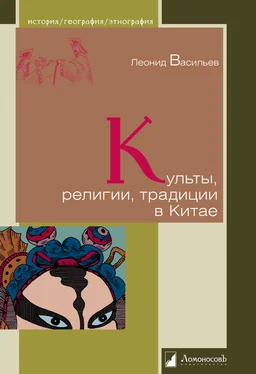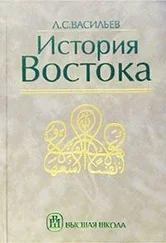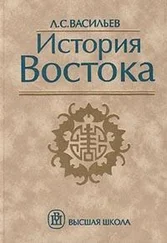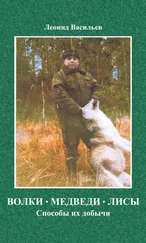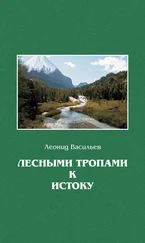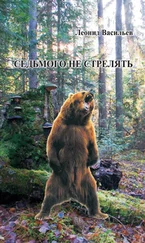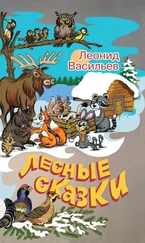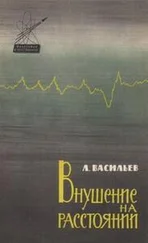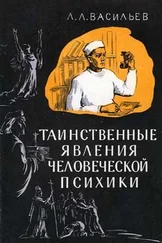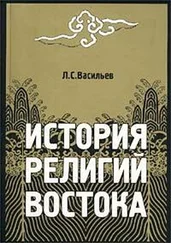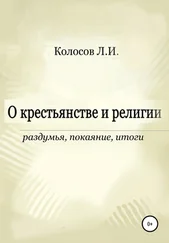312. Creel H. G„ The Birth of China, London, 1958.
313. Creel H. G., The Meaning of Hsing-ming, – «Studia Serica. Bernhard Karlgren Dedicata», Copenhagen, 1959.
314. Creel H. G., Confucius and the Chinese Way, New York, 1960.
315. Creel H. G., The Fa-chia: «Legalists» or «Administrators», – «Bulletin of the Institute of History and Philology, Academia Sinica», vol. IV. «Studies Presented to Tung Tso Pin on His Sixty-Fifth Birthday», Taipei, 1961.
316. Creel H. G., The Beginnings of Bureaucracy in China: the Origin of the Hsien, – JAS, vol. XXIII, 1964.
317. Creel H. G., On the Origin of Wu-Wei, – «Symposium in Honor of Dr. Li Chi on His Seventieth Birthday», pt 1, Taipei, 1965.
318. Crow C., Master Kung. The Story of Confucius, London, 1938.
319. David-Neel A., Le Bouddhisme, ses doctrines et ses méthodes. Paris, 1936.
320. David-Neel A., Immortalillè et rеinkarnation, Paris, 1961.
321. Davis T. L., The Dualistic Cosmogony of Huai-nan-tzu and its Relations to the Background of Chinese and of European Alchemv, – «Isis», vol. XXV, 1936, № 2.
322. Dawson R., The Legacy of China, Oxford, 1964.
323. Dawson R., The Chinese Chameleon, London – New York – Toronto, 1967.
324. Dау С. В., Chinese Peasant Cults Being a Study of Chinese Paper Gods, Shanghai – Hongkong, 1940.
325. Day С. В., The Philosophers of China, classical and contemporary, New York, 1962.
326. Debon G., Speiser W., Chinesische Geisleswelt von Konfuzius bis Mao Tse-tung, Baden-Baden, 1957.
327. Demiéville P., La Yogacarabhumi de Sangharaksa, – BEFEO, vol. XLIV, 1954.
328. Devaranne Т., Konfucius in aller Welt, Leipzig, 1929.
329. Dien A. E., Yen Chin-fui (531 – 591): A Buddho – Confucian, – CPn.
330. Dobson W. A. C. H, Mencius, London, 1963.
331. Do-Dinh P., Confucius et I’humanisme chinois, Bourges, 1958.
332. Doeblin A., The Living Thoughts of Confucius, London, 1959.
333. Dооlittle J., Social Life of the Chinese, New York, 1867.
334. Dоré H., Recherches sur les superstitions en Chine, Changhai, 1911 – 1938.
335. Doré H. (Engl, tr. by M. Kennellу), Researches into Chinese Superstitions, Shanghai, 1914 – 1938.
336. Douglas R. K., Society in China, London, 1895.
337. Dubs H. H., Hsiin Tzu. The Moulder of Ancient Confucianism, London, 1927.
338. Dubs H. H., The Works of Hsiintze, London, 1928.
339. Dubs H. H., Did Confucius Study the «Book of Changes»? – TP, vol. XXV, 1928.
340. Dubs H. H., The Golden Man of Former Han Times, – TP, vol. XXXIII, 1937.
341. Dubs H. H., The Attitude of Han Kao-tsu to Confucianism, – JAOS vol. 57, 1937, № 2.
342. Dubs H. H., The Victory of Han Confucianism, – JAOS, vol 58, 1938 № 3.
343. Dubs H. H., An Ancient Chinese Mystery Cult, – «Harvard Theological Review», 1942, vol. 35.
344. Dubs H. H., The Political Career of Confucius, – JAOS, vol. 66, 1946, № 4.
345. Dubs H. H., The Archaic Royal Jou Religion, – TP, vol. XLVI, 1958.
346. Dubs H. H., Theism and Naturalism in Ancient Chinese Philosophy – PEW, vol. IX, 1959 – 1960, № 3 – 4.
347. Dumоutier G., Le Swastika et la roue solaire dans les symboles et dans les caracteres chinois, – «Revue d’Ethnographie», t. IV, 1885, № 4.
348. Dun J. Li, The Ageless Chinese: A History, New York, 1965.
349. Duуvendаk J. J. L., The Book of Lord Shang, London, 1928.
350. Duуvendаk J. J. L., Tao Tö king, le livre de la voie et de la vertu, Paris, 1953.
351. Dvorák R., Chinas Religionen, Münster, 1903.
352. Eberhard W., Beiträge zur kosmologischen Spekulation der Chinesen der, Berlin, 1933.
353. Eberhard W., Early Chinese Cultures and their Development (A New Working-Hypothesis), – «Annual Report of the Smithsonian Institution», 1937.
354. Eberhard W., The Composition of the Leading Political Group During the «Five Dynasties», – AS, 1947, № 1/2.
355. Eberhard W., Das Toba-Reich Nordchinas: eine soziologische Untersuchung, Leiden, 1949.
356. Eberhard W., A History of China, Berkeley – Los-Angeles, 1930.
357. Eberhard W., Remarks on the Bureaucracy in North China During the Tenth Century, – «Oriens», vol. IV, 1951.
358. Eberhard W., Conquerors and Rulers, Leiden, 1952.
359. Eberhard W., Chinese Festivals, New York, 1952.
360. Eberhard W., The Political Function of Astronomy and Astronomers in Han China, – CTI.
361. Eberhard W., Social Mobility in Traditional China, Leiden, 1962.
362. Eberhard W., Guilt and Sin in Traditional China, Berkely, 1967.
363. Eckardt A., China Geschichte und Kultur. Baden-Baden, 1959.
364. Edkins J., Religion in China, London, 1884.
365. Edkins J., Chinese Buddhism, London, 1893.
366. Eickhorn W., T’ai-p’ing and T’ai-p’ing-Religion, Berlin, 1957.
367. Eisenstadt S. N., The Political Systems of Empires, London, 1963. 368. Eitel E. J., Feng-shui: or, The Rudiments of Natural Science in China, Hongkong, 1873.
369. Erdberg-Consten E., Kunst and Religion in Indien, China und Japan, Köln, 1965.
370. Erkes E., Idols in Pre-buddhist China, – AA, 1928, № 1.
371. Erkes E., Der Totemismus bei den Chinesen und ihren Stammverwandten, – «Memoriam Karl Weule», Leipzig, 1929.
372. Erkes E., Some Remarks on Karlgren’s «Fecundity Symbols in Ancient China», – BMFEA, № 3. 1931.
373. Erkes E., Die Anfange des Dauistischen Mönchstum, – «Sinica», Bd XI, 1936, № 1/2.
374. Erkes E., The God of Death in Ancient China, – TP, XXXV, 1939. 375. Erkes E., Zum altchinesischen Orakelwesen, – TP, XXXV, 1940.
376. Erkes E., Eine P’an-Ku-Mythe der Hsia-Zeit? – TP, XXXVI, 1941, № 2.
377. Erkes E., Der Schamanistische Ursprung des Schinesischen Ahnenkultus, – «Sinologica», vol. II, 1950, № 4.
378. Etiemble R., Connaisons-nous la Chine?, Paris, 1964.
379. Etiemble R., Confucius, Paris, 1966.
380. Etiemble R., Les Jésuites en Chine (1552 – 1773), Paris, 1966.
381. Fairbank J. K. (ed.), Chinese Thought and Institutions, Chicago. 1957.
382. Fairbank J. K. (ed.), The Chinese World Order, Traditional China’s Foreign Relations, Cambridge, Mass., 1968.
383. Fairbank J. K., Teng S. Y., On the Ching Tributary System, – HJAS, vol. VI, 1941, № 2.
384. Fairservis W. A., The Origins of Oriental Civilization, New York, 1959.
385. Fang Т. H., The Chinese View of Life. The Philosophy of Comprehensive Harmony, Hong Kong, 1957.
386. Fang Т. H., The World and the Individual in Chinese Metaphysics, – CM.
387. Fei Hsiao-tung, China’s Gentry, Chicago, 1953.
388. Feifel E., Pao-p’u-tzu, – «Monumenta Serica», vol. 6, 1941; vol. 9, 1944; vol. 11, 1946.
389. Feng Han-yi (Feng Han-chi), The Chinese Kinship System, Cambridge, Mass., 1948.
390. Ferguson J. C., The Confucian Renaissance in the Sung Dynasty, Shanghai, 1902.
391. Ferguson J. C., Chinese Mythology, – «The Mythology of All Races», vol. VIII, New York, 1928.
392. Finsterbusch K., Das Verhältnis des Shan-hai-djing zur bildenden Kunst, Berlin, 1952.
393. Fitzgerald С. P., China. A Short Cultural History, London, 1935.
394. Fitzgerald C. P., The Chinese View of their Place in the World, London, 1964.
395. Forke A., Se Wang Mu, – MSOS, Jg. IX, 1906.
396. Forke A., The World-conception of the Chinese, London, 1925.
397. Forke A., Geschichte der alten chinesischen Philosophie, Hamburg, 1927.
398. Forke A., Geschichte der mittelalterlichen chinesischen Philosophie, Hamburg, 1934.
399. Forke A., Geschichte der neueren chinesischen Philosophie, Hamburg, 1938.
400. Franke O., Zur Frage der Einführung des Buddhismus in China, – MSOS, Jg. XIII, 1910.
Читать дальше
Конец ознакомительного отрывка
Купить книгу
